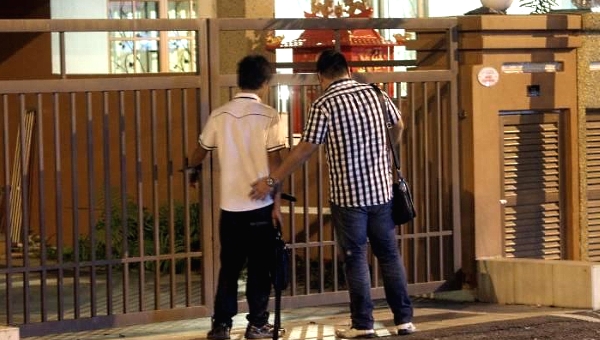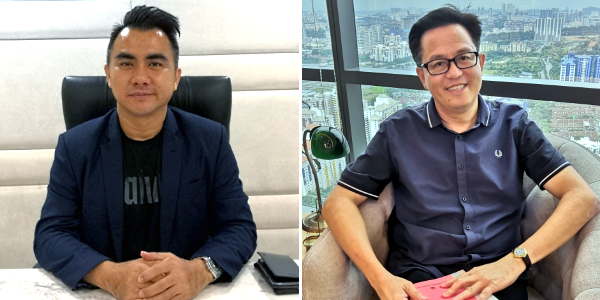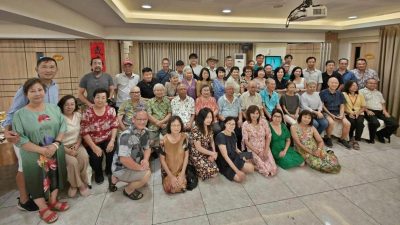Many have highlighted the unethical approach of charitable organizations soliciting for donations by paying high commissions to agents.
How do members of the public donate with peace of mind? Have they thought of using blockchain technology to track the money they have donated?
We used to see many young people at shopping malls, hawker centers and places crowded with people soliciting for donations in support of charity homes.
Members of the public are approached with the opening remark, "Hi sir, have you thought of XX agency? Can you give me five minutes to explain?"
These fundraisers are hired by charitable organizations, some even engaging professional agents to help in fund raising.

Lawyer Gan Ping Sieu is of the view that such an approach, which is not regulated, leads to controversies.
Many are companies which hire agents to raise funds for charitable organizations.
The agents are paid lucrative commissions based on the sums raised.
Sin Chew Daily received calls from two former staff of a disabled children's home in Selayang which they claimed was involved in such fund-raising approach.
One of them raised funds by sending WhatsApp messages to members of the public. His story was not published after the interview for fear of his safety.
A call was subsequently made to one of the disabled children's home in Selayang by Sin Chew Daily. A social worker identified as Miss V just kept silent or gave unclear reply when contacted.
Miss V, who said she was a social worker at the home, was in charge of feeding disabled children and cleaning. Sometimes she helped source for goods but stressed that 'she did not raise any fund'.
When pressed how the public received messages sent out by the home seeking cash donations, Miss V then changed her stand, saying, "We only think of ways to raise money (such as sending out messages) depending on the request made by the person-in-charge of the home."
Miss V said she had a full-time job and only helped out at the home during weekends. She did not receive any commission.
"Sometimes the caretaker of the home would buy food for us," she said.
On whether other social workers received commissions from the funds raised, Miss V said she had no idea.
Mr P, who previously worked in a company specializing in fund raising, said normally one to two committee members would be in charge of fund raising. If a charity home engages large number of volunteers to raise funds through phone calls, they would likely be paid commissions based on the sum raised.
"These volunteers work in a team to send out messages seeking for cash donations. They will tell you an old folks home needs RM20,000 to RM30,000 to operate. In fact, one to two volunteers are capable of raising the money. The rests are profits," he said.
Mr P, who has since left the company, said to stop such companies from raising funds, the volunteers should not be making profits.
"Those in need are affected by the unethical approach of soliciting donations," he said.
The volunteers are mainly young people. Hence Mr P reminded parents to pay attention to the nature of jobs their children are working.
When one receives a call seeking for donation, Mr P suggested making a request to have a video call with the caller and have a visual tour of the home.
"If the caller is speaking to you in an office environment, you can lodge a police report based on the phone number and the photo for the police to investigate,'' he said.
Mr P also encouraged donors to personally hand over cash donation at the home and request for contact details of the people in-charge.
He also said members of the public should not donate based on few photographs and the phone calls they receive.
Volunteers also raise funds for those who need to undergo emergency operation.
Mr P suggested members of the public to verify with the patient's family and the bank account before making donations. Once the donations reach the targeted sum, an announcement should be made to stop collecting funds to prevent abuse of funds, he said.

Gan said although donors contribute on a voluntary basis, agents may receive more than 50% of the donations made.
Such approach is misleading, unreasonable and deceiving.
"For example, I donated RM50,000 but RM20,000 to RM30,000 of the entire sum is paid out as commissions. This is a breach of trust!
Section 405 of Penal Code says: Whoever, being in any manner entrusted with property, or with any dominion over property either solely or jointly with any other person dishonestly misappropriates, or converts to his own use, that property, or dishonestly uses or disposes of that property in violation of any direction of law prescribing the mode in which such trust is to be discharged, or of any legal contract, express or implied, which he has made touching the discharge of such trust, or willfully suffers any other person so to do, commits "criminal breach of trust".
Gan said he had doubts about paying volunteers with commissions. He said by outsourcing fund-raising to a third party organization, it may help the charity home to cut cost.
"Do we use profit-oriented approach for charity work?'' Gan questioned.
As volunteers' remunerations are performance-based, they are motivated to deliver.
Nevertheless, Gan questioned whether such an approach is fair to the donors and recipients.
"The homes may argue that they are unable to achieve their targets without adopting such approach. My question would be without adopting such commercial approach, can the home raise the same amount of fund?"
"If I donate RM50 each month for 20 years, the RM160 paid to the agents is not a huge sum. I will feel much better if the volunteers are receiving monthly salary instead of incentives," he said.
Malaysia Emerging Technology Association president Jack Lee said he planned to establish an online platform using blockchain technology to resolve the trust issues in charity circle.
He said blockchain technology would record time and figure for each transaction of donation, charity sale by donors and recipients, thus improving transparency.

ADVERTISEMENT
ADVERTISEMENT


































